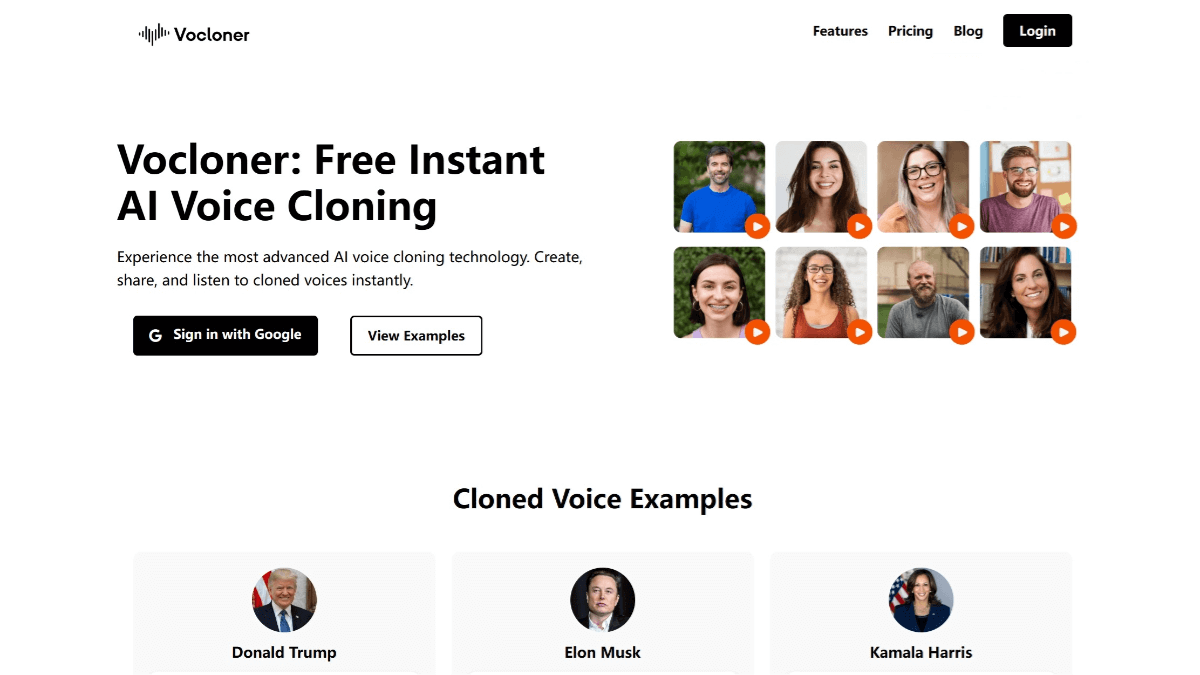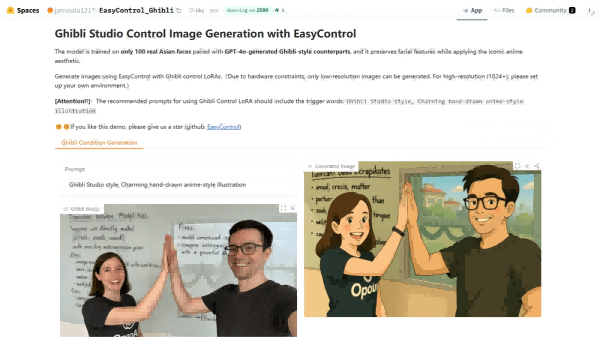What is Vocloner?
Vocloner is an AI-powered online voice cloning tool that enables users to quickly synthesize cloned speech by uploading a target voice audio file and entering text—without requiring speech model training. Vocloner supports multiple languages and offers two cloning options: a classic version using Coqui’s TTS technology, and an updated version based on Coqui AI’s open-source XTTS tool, which enhances the cloning quality and supports multilingual output.

Key Features of Vocloner
-
Instant Voice Cloning:
Users can upload a target voice audio file and input the desired text, and Vocloner will synthesize the cloned speech within seconds—no model training required. Vocloner is free to use with a daily limit of 1,000 characters. -
Model Creation and Storage:
Users can create and save personalized voice models for future use. -
Multilingual Support:
Vocloner supports 18 languages, allowing users to switch seamlessly between languages using a single voice without needing to create separate models. -
Two Cloning Versions:
Offers both a classic version (powered by Coqui TTS) and an updated version (using Coqui AI’s XTTS tool). The updated version provides enhanced cloning quality and supports multiple languages. -
Support for Chinese Dialects:
Includes support for various Chinese dialects and accents, such as Cantonese, Sichuanese, Shanghainese, and more. -
Variety of Speaking Styles:
Enables voice synthesis with different emotional tones and styles, including mysterious, aggressive, fearful, curious, sad, happy, surprised, etc. -
Character Imitation:
Supports voice acting that mimics specific character personas, such as a robot, a melancholic poet, or a dignified ancient general.
Vocloner Official Website
- Website: https://vocloner.com
Application Scenarios for Vocloner
-
Content Creation:
Content creators can use Vocloner to add diverse voiceovers to videos without hiring multiple voice actors. -
Accessibility Support:
Useful in assistive technologies like screen readers or communication devices for individuals with speech impairments. -
Language Learning:
Language learners can use cloned native speaker voices to practice pronunciation. -
Personalized Digital Assistants:
Developers can give chatbots or virtual assistants unique and personalized voices.




